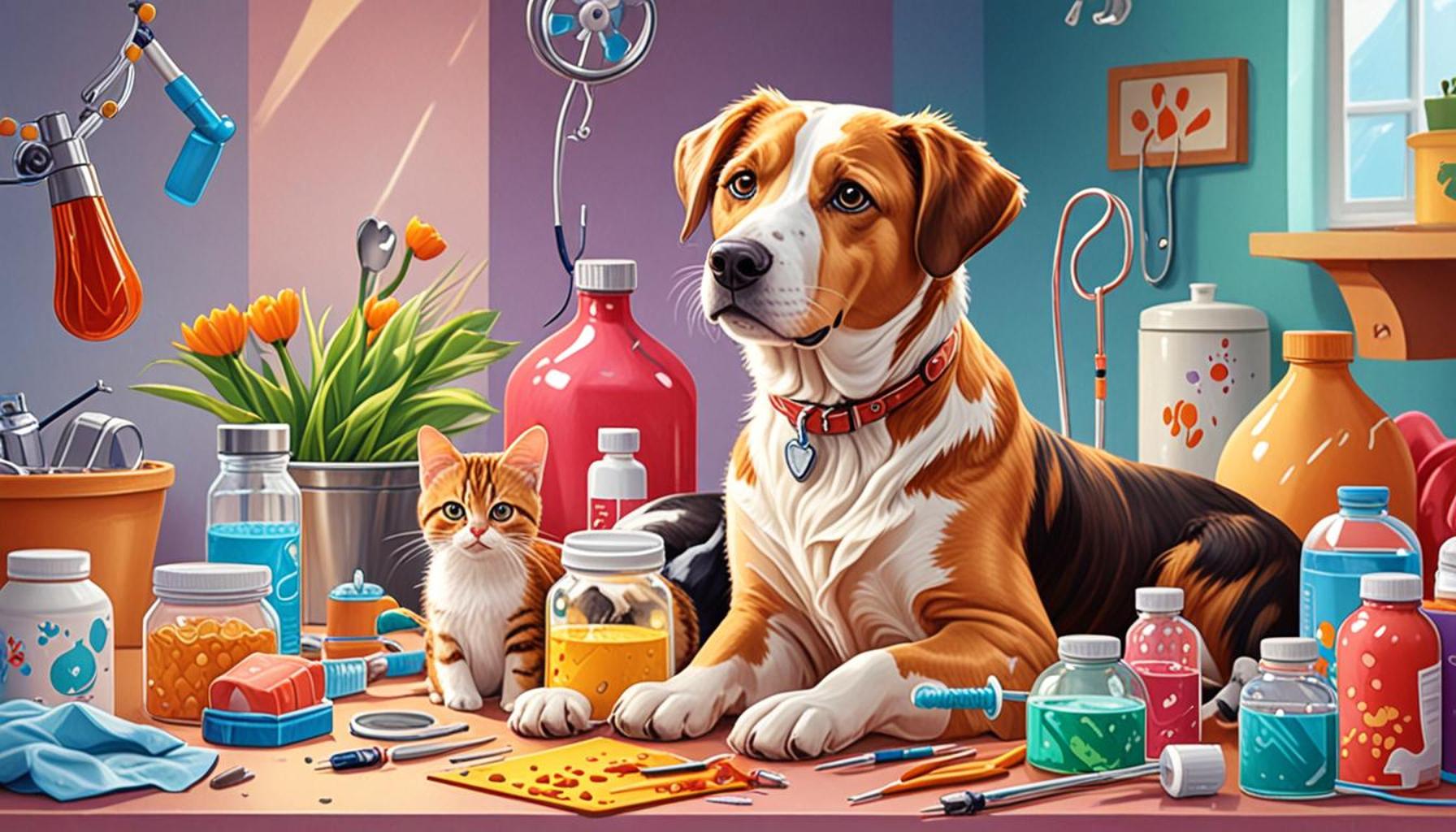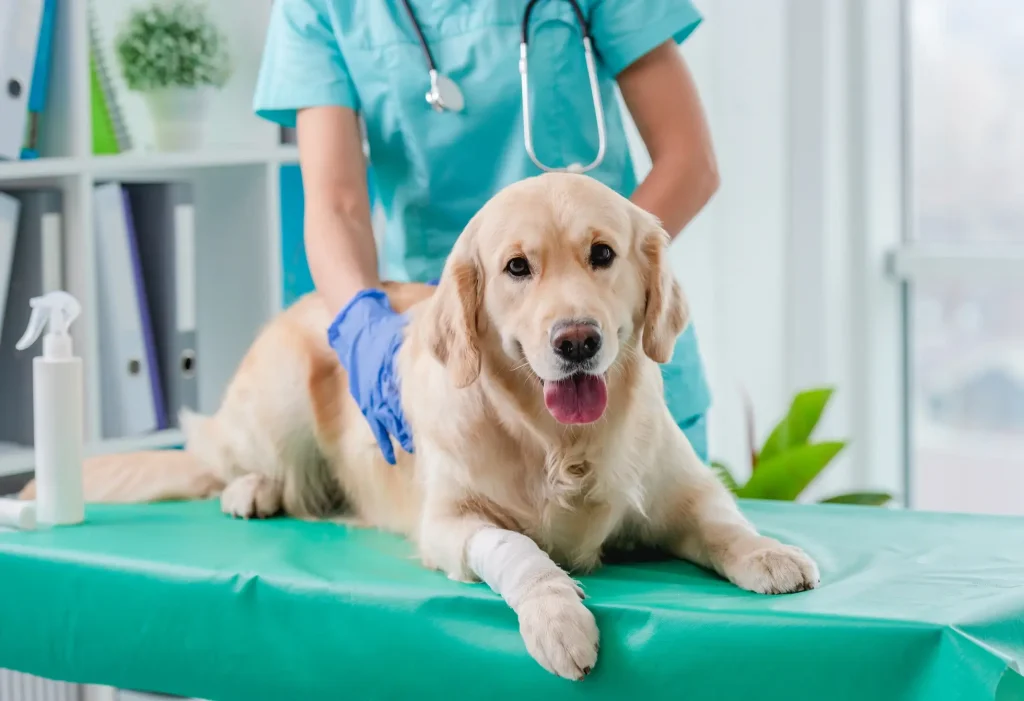The Importance of Veterinary Prevention: Vaccination and Regular Care for Pet Health

The Importance of Veterinary Prevention
Every pet owner knows that their furry companions deserve the best care possible. However, the significance of veterinary prevention often goes overlooked in the hustle of daily life. Regular check-ups and vaccinations can make a crucial difference between a healthy pet and one that suffers from preventable diseases. By establishing a routine vet schedule, pet owners not only protect their animals from immediate threats but also contribute to their long-term well-being.
Why Regular Veterinary Care Matters
Regular veterinary visits are essential not just for treating ailments but also for maintaining the overall health of pets, ultimately enhancing their quality of life. Consider the following benefits:
- Early Detection: Routine examinations can catch health issues before they escalate into serious problems. For instance, conditions like diabetes or heart disease can often go undetected in early stages, but through regular check-ups, vets can identify risk indicators and implement management strategies right away.
- Vaccination: Essential vaccines protect against a variety of diseases, from rabies to parvovirus. It is worth noting that many states have legal requirements for certain vaccinations. For example, rabies vaccinations are mandatory in all 50 states to curb the spread of this fatal disease, which can affect both pets and humans.
- Parasite Control: Regular check-ups ensure that pets are free from harmful parasites, like fleas, ticks, and worms. These parasites can lead to severe health complications, including anemia, skin infections, or even life-threatening diseases such as Lyme disease or heartworm. Routine screenings allow for timely treatments, reducing any potential suffering.
In the United States, many veterinary clinics emphasize the importance of a comprehensive preventive care plan. This includes wellness exams, dental care, and nutritional counseling. According to the American Veterinary Medical Association (AVMA), pets that receive regular preventive care live significantly longer and healthier lives than those who do not. For instance, routine dental cleanings can prevent periodontal disease, leading to better overall health, as oral infections can impact vital organs such as the heart and kidneys.
Get Informed
Understanding the role of prevention in pet health is crucial. The right information, paired with regular veterinary care, can lead to a smoother and happier life for both pets and their owners. By educating ourselves on preventive measures and the specific healthcare needs of our pets, we can proactively address potential health issues. To delve deeper into the specifics and uncover more compelling reasons for preventive care, stay tuned as we explore the vital aspects of veterinary prevention in the upcoming sections. Knowledge is key, and having a well-informed approach can mean the difference between a thriving pet and one that suffers unnecessarily.
LEARN MORE: Click here to find out the essential requirements

Key Components of Veterinary Preventive Care
Veterinary prevention encompasses various aspects of healthcare that work together to safeguard pets against a myriad of potential health issues. Pet owners play a pivotal role in this process, as their diligence in pursuing preventive measures can lead to happier and healthier lives for their companions. Understanding the essential elements of veterinary preventive care is the first step towards achieving optimum pet health. Here are some of the key components:
- Vaccinations: Vaccination is one of the foremost strategies in veterinary prevention. Vaccines protect pets against contagious diseases like distemper, hepatitis, and leptospirosis, which can spread rapidly and may be fatal. Vaccination schedules may vary based on factors such as age, breed, and lifestyle, but adhering to a veterinarian-recommended schedule is crucial. The Centers for Disease Control and Prevention (CDC) emphasizes the importance of rabies vaccination, given that it’s a serious zoonotic disease that can affect both pets and humans.
- Regular Wellness Exams: Comprehensive wellness exams should be conducted annually or as directed by a veterinarian. During these check-ups, vets assess pets’ physical condition, monitor weight, and check for any abnormalities. This proactive approach allows for the early detection of health issues that may not be evident to pet owners. For example, a small lump may be benign, but early veterinary intervention could prevent it from developing into a more serious condition.
- Dental Care: Pet dental health is often neglected, yet it is crucial for overall well-being. Periodontal disease can lead to painful infections and systemic health issues affecting the heart and kidneys. Regular dental check-ups and cleanings help maintain proper oral hygiene and prevent complications associated with poor dental health.
- Parasite Prevention: Fleas, ticks, and intestinal worms are more than just nuisances; they can hamper your pet’s health and even lead to severe illness. Regular testing and preventive treatments help to ensure that pets remain free from these harmful parasites. The Companion Animal Parasite Council (CAPC) recommends a year-round parasite prevention program as dogs and cats can be at risk, regardless of their living conditions.
- Nutritional Guidance: Proper nutrition is the foundation of health, and veterinarians can provide valuable insights on diet tailoring for each pet’s specific needs. Obesity is an increasing concern for pets in the U.S., and a well-balanced diet paired with regular exercise can prevent a host of health issues, from diabetes to joint problems. Nutritional counseling is an integral part of preventive care that can influence a pet’s overall longevity and vitality.
Engaging in these regular preventive measures can dramatically affect a pet’s quality of life. The American Animal Hospital Association (AAHA) reports that pets who receive consistent veterinary care can live up to 15% longer compared to those who do not. The bond between pet owners and their furry companions is strengthened by ensuring they live long, healthy lives, filled with joy and companionship.
Embrace Preventive Care
Investing time and resources into veterinary preventive care is not just about minimizing potential health risks; it enhances the overall relationship between pets and their owners. By prioritizing regular veterinary visits, vaccinations, and professional advice, pet owners can take substantial steps in paving the path toward enduring companionship and well-being. In the subsequent sections, we will delve deeper into how specific preventative measures can be tailored to individual pets, ensuring that each animal receives the care it deserves.
The Role of Vaccination in Preventative Veterinary Care
Vaccination stands as a cornerstone of preventative veterinary care, offering a robust shield against a variety of infectious diseases that can threaten your beloved pets. When pets are vaccinated, they not only protect themselves but also contribute to the overall health of the pet community, a principle known as herd immunity. Vaccines can prevent serious illnesses such as rabies, parvovirus, and distemper, ultimately saving pet owners from the heartache and financial strain associated with treating advanced disease.Regular vaccination schedules tailored to the age, lifestyle, and health of pets can help ensure that they are protected throughout their lives. For instance, puppies and kittens require a series of vaccines during their developmental milestones to establish immunity. As pets age, they may also benefit from booster vaccines that reinforce their bodies’ defenses against pathogens.
The Impact of Routine Veterinary Checkups
Routine veterinary checkups should not be underestimated. Just like humans, pets require consistent evaluations to monitor their overall well-being and ensure prompt detection of any health issues. During these checkups, veterinarians can assess your pet’s weight, dental health, and vital signs, which are critical indicators of their overall health.Moreover, routine visits often include discussions around preventative care strategies, such as nutrition, exercise, and parasite control. These conversations can provide valuable insights and actionable advice that pave the way to a healthier and longer life for your furry companions.Additionally, many pet owners may overlook the necessity of dental care as part of overall health. Regular dental assessments and cleanings can prevent severe conditions, including periodontal disease, which is not only a concern in itself but can also lead to systemic health issues affecting the heart, liver, and kidneys.Encouraging pet owners to engage in a proactive healthcare approach, including vaccination and regular checkups, is pivotal for ensuring that pets live fulfilling and healthy lives. By collaborating with a trusted veterinarian, pet owners can stay informed about advancements in veterinary medicine and keep their pets healthily guarded against preventable ailments.
| Vaccination | Benefits |
|---|---|
| Prevents Severe Diseases | Reduces the risk of fatal illnesses and prevents outbreaks. |
| Saves Money in the Long Run | Avoids costly treatment for diseases that could have been prevented. |
| Contributes to Community Health | Protects not just individual pets, but also the wider pet community. |
Routine veterinary visits are essential in ensuring that vaccinations remain current, and they significantly enhance the chance of early disease detection, which can be key to effective treatment options. Through diligence in preventative care practices, pet owners can foster healthier lives for their cherished companions.
DIVE DEEPER: Click here to learn how to implement crate training
The Role of Owner Education and Awareness
One of the critical aspects of effective veterinary prevention lies in the education and awareness of pet owners regarding their furry companions’ health needs. Understanding the specific requirements for each pet species, breed, and age group can significantly impact health outcomes. Pet owners must engage in continuous learning about their pets, the conditions they may face, and the preventive measures that can be taken to enhance their well-being.
For instance, certain breeds are genetically predisposed to specific health issues. For example, large breeds like Great Danes and Bernese Mountain Dogs may be more susceptible to hip dysplasia, while small breeds such as Dachshunds are prone to intervertebral disc disease. Pet owners should seek guidance from their veterinarians on breed-related health risks and maintain an ongoing dialogue about their pet’s health status. Regular discussions with a veterinarian can lead to personalized preventive care plans, which can include tailored nutrition, exercise, and wellness strategies.
Behavioral Health and Enrichment
Additionally, mental and emotional well-being are essential components of veterinary prevention that are often overlooked. Pets, much like humans, experience stress, anxiety, and depression. These issues can lead to a decline in physical health, underscoring the importance of a holistic approach to pet care. Proper socialization, enrichment activities, and routine mental stimulation can help prevent behavioral issues that might result in long-term health consequences.
Recent studies have shown that pets that receive regular mental stimulation, such as problem-solving games, training sessions, and interactive play, tend to exhibit fewer behavioral problems and lower stress levels. Veterinary professionals can recommend specific enrichment techniques tailored to an individual pet’s personality and needs, further enhancing the effectiveness of preventive care.
Community Involvement and Resources
In many communities across the United States, pet health education initiatives and vaccination clinics are becoming more widespread. These initiatives aim to provide accessible veterinary care and information to pet owners who may have previously been unaware of the importance of preventive measures. Local animal shelters, nonprofits, and veterinary schools often host educational workshops and vaccination drives, offering resources for responsible pet ownership.
Community involvement not only increases awareness of healthcare options but also promotes the importance of spaying and neutering pets. These procedures can help manage the homeless pet population while simultaneously reducing the risk of certain health issues, including cancers of the reproductive system. Moreover, spayed and neutered pets often experience lower rates of aggression, making them easier to manage and care for at home.
The Economic Impact of Preventive Care
When assessing the importance of veterinary prevention, one cannot overlook the economic advantages. Investing in preventive care may seem like an additional expense, but the long-term savings resulting from reduced emergency visits, chronic disease management, and potential surgical interventions can be substantial. According to the American Pet Products Association, pet owners in the U.S. spend over $30 billion annually on veterinary services, emphasizing the significance of prioritizing preventive care to mitigate future costs.
In essence, fostering a keen understanding of pet health, combined with active involvement in community initiatives and utilizing the veterinary resources available, empowers pet owners to take proactive steps in safeguarding their pets’ health. Ultimately, this comprehensive approach lays the groundwork for a happier and healthier life—both for pets and their devoted owners.
DISCOVER MORE: Click here to learn how your efforts can make a difference
Conclusion
In conclusion, the significance of veterinary prevention through vaccination and regular care cannot be overstated. This approach not only fortifies our pets against preventable diseases but also enhances their overall quality of life. By prioritizing routine veterinary visits, pet owners are not merely investing in their pets’ health—they are ensuring their longevity and happiness as well.
The evolving landscape of pet care emphasizes the necessity for education and awareness among pet owners. Understanding species-specific and breed-related health risks allows owners to tailor their approach to preventive care effectively. In addition, recognizing the importance of mental and behavioral health contributes to a well-rounded strategy that addresses both physical and emotional needs, further strengthening the bond between pets and their owners.
Moreover, community involvement plays a vital role in enriching the preventive care landscape. Accessible veterinary resources, educational workshops, and vaccination clinics empower pet owners to take proactive measures, safeguarding pets not only from health complications but also contributing to significant cost savings in the long run.
Ultimately, by embracing a comprehensive preventive care strategy—one that incorporates vaccination, regular check-ups, and home care—pet owners step into a proactive role in their pets’ health journey. This commitment will undoubtedly lead to more fulfilling lives for our beloved companions, reducing the prevalence of disease and improving the relationship we cherish. As we move forward, let us advocate for a future where every pet receives the preventive care they deserve, fostering a healthier, happier community of animals and owners alike.


